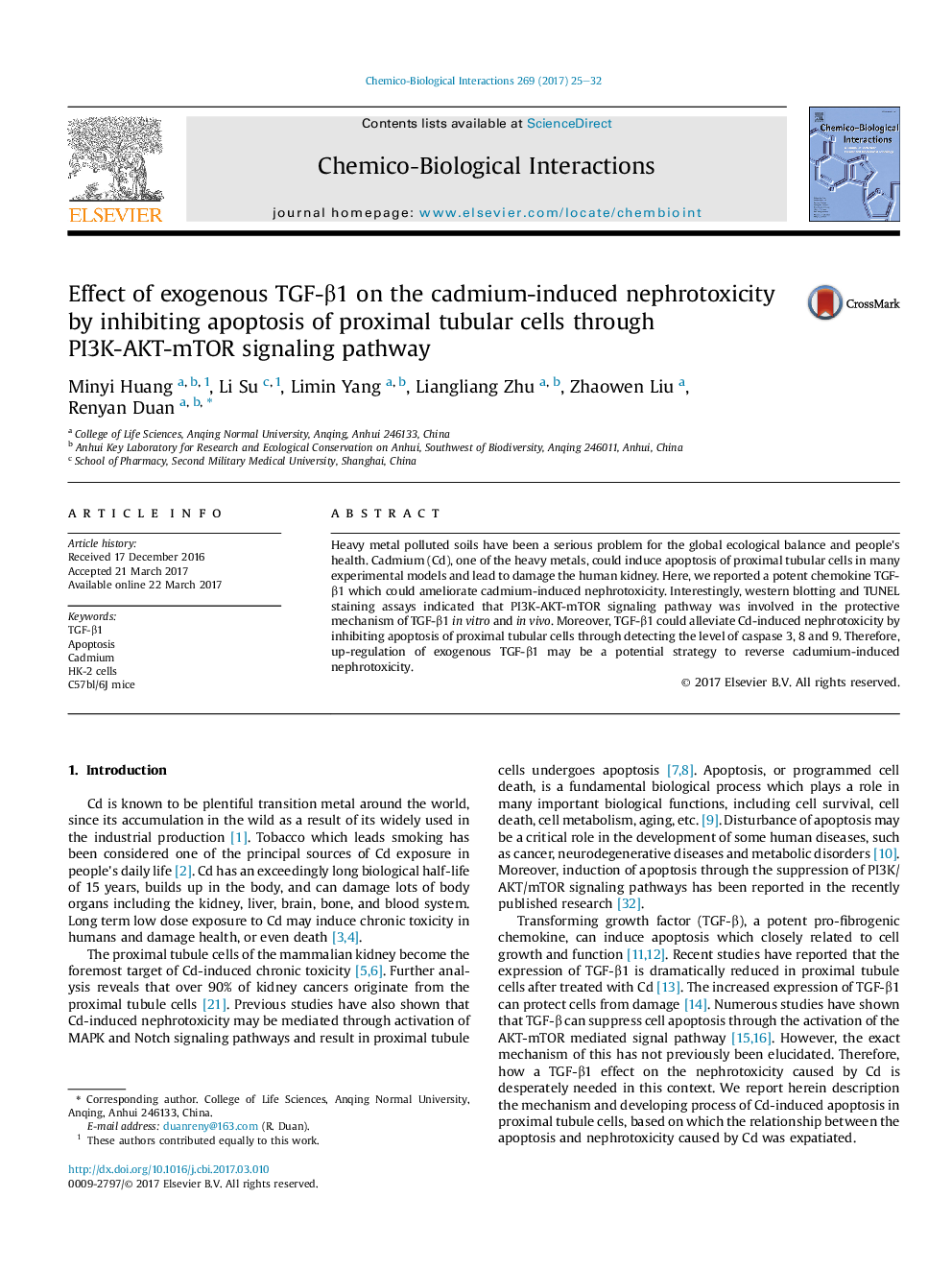| Article ID | Journal | Published Year | Pages | File Type |
|---|---|---|---|---|
| 5559580 | Chemico-Biological Interactions | 2017 | 8 Pages |
â¢PI3K-AKT-mTOR signaling pathway was involved in the protective mechanism of TGF-β1 on the Cd-induced nephrotoxicity.â¢TGF-β1 could alleviate Cd-induced nephrotoxicity by inhibiting apoptosis of proximal tubular cells in vitro and in vivo.â¢TGF-β1 could alleviate Cd-induced apoptosis by PI3K-AKT-mTOR signaling pathway in vivo.
Heavy metal polluted soils have been a serious problem for the global ecological balance and people's health. Cadmium (Cd), one of the heavy metals, could induce apoptosis of proximal tubular cells in many experimental models and lead to damage the human kidney. Here, we reported a potent chemokine TGF-β1 which could ameliorate cadmium-induced nephrotoxicity. Interestingly, western blotting and TUNEL staining assays indicated that PI3K-AKT-mTOR signaling pathway was involved in the protective mechanism of TGF-β1 in vitro and in vivo. Moreover, TGF-β1 could alleviate Cd-induced nephrotoxicity by inhibiting apoptosis of proximal tubular cells through detecting the level of caspase 3, 8 and 9. Therefore, up-regulation of exogenous TGF-β1 may be a potential strategy to reverse cadumium-induced nephrotoxicity.
